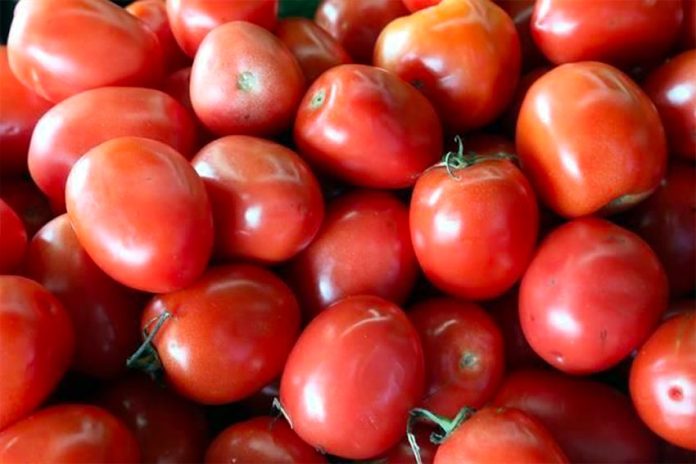The construction of new warehouse space on the Mexico-United States border for inspections of Mexican tomatoes will cost U.S. importers more than US $200 million, according to an industry association.
The Fresh Produce Association of the Americas (FPAA), an Arizona-based agricultural group, said in a statement that the new Tomato Suspension Agreement between Mexico and the United States – which removes tariffs on Mexican exports – will ensure continued market access for Mexican tomatoes but comes at “an extreme cost” to importers.
The FPAA said they “will face unjustified costs and disruption to business due to the controversial border inspection mechanism, which acts as a technical barrier to trade.”
Under the terms of the bilateral agreement, which was signed last Thursday, 92% of Mexican tomato trucks will be subject to quality control inspections.
The United States Department of Commerce said in August that the inspection mechanism will prevent imports of “poor-condition” tomatoes that have “price suppressive effects” for the broader market.
But FPAA president Lance Jungmeyer said “it is completely unnecessary to require USDA [the U.S. Department of Agriculture] to conduct quality inspections on an item that has already demonstrated a historical pass rate of 99.76%.”
In addition to an upfront cost of more than US $200 million to build warehouse space, the agricultural association said that importers will have to fork out another $50 million a year in fees and other costs.
The FPAA is also concerned that there are no protections in the suspension agreement if tomato inspections take longer than expected.
Tomato producers said in July that the requirement would create “a logistical tangle” at the border, given that 120,000 trucks a year would have to be inspected, a process estimated to take an hour and a half for each truck.
The agreement states that USDA will complete the inspection “normally within 24 hours” but it “falls short of providing a waiver in case the inspection cannot be done,” the FPAA said.
“Vine-ripened tomatoes are sensitive perishable items that continue to ripen after harvest, and typically must be delivered to customers within seven days after harvest. Adding a day or two for inspection at the border reduces shelf life,” it added.
Jungmeyer said that as the “USDA has assured us the inspections can be done within 24 hours . . . there should be no problem including language for a waiver in the instance the deadline can’t be met.”
The FPAA said “the imposition of a non-tariff trade barrier represents a step backward in international trade,” while Jungmeyer said that the move is “truly short-sighted.”
There are concerns that importers of other fresh produce such as avocados, grapes and citrus fruits could take an economic hit due to a slowdown in inspections as a result of the increased scrutiny of tomatoes.
“Food is a just-in-time business,” Jungmeyer said. “All around, this is a total step backward.”
Source: Reforma (sp)
